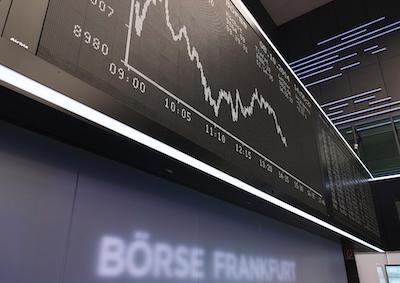By Mark McSherry — Assets under management (AuM) at the world’s 500 largest asset managers reached a new record of over $131 trillion in 2021, according to new research from Willis Towers Watson’s Thinking Ahead Institute.
That’s is an increase of over 10% on the previous year, when assets had grown by 14.5% to over $119 trillion.
US managers account for 15 out of the 20 largest firms and around 82% of assets.
The European asset managers in the top 20 are Allianz Global of Germany at number 6 with almost $3 trillion, Amundi of France at number 10 with $2.3 trillion, UBS of Switzerland at number 11 with $2.1 trillion, and BNP Paribas of France at number 19 with $1.4 trillion.
The research, conducted in conjunction with US investment newspaper Pensions & Investments, also shows further concentration of assets managed by the very largest fund companies.
The world’s top 20 asset managers are now responsible for over $59 trillion of assets, having grown at an above-average annual rate of 13%.
The research shows that BlackRock is both the world’s largest asset manager and the first to exceed $10 trillion.
Vanguard Group is ranked second with more than $8 trillion — and it is significantly ahead of Fidelity Investments and State Street Global, ranked third and fourth respectively, each with just over $4 trillion.
According to the research, passively managed funds grew by 12.1% during the year, faster than actively managed assets which grew at 9.5%, and now account for over 29% of assets – a record high.
It also shows that equity and fixed income continued to make up the majority of assets, split by 46.5% and 33.9% respectively. Cash makes up 6.6%, alternatives 5.9% and other strategies 7.1%, these include liability-driven investment (LDI) and other specialist solutions.
Marisa Hall, co-head of the Thinking Ahead Institute, said: “Investment managers are facing a combination of long-term headwinds from macro-economic, geopolitical and climate risks – but are also spurred on by the driving factors of technology and industry innovation.
“This is a story of dark clouds on the horizon, potentially matched by a powerful engine room of innovation.
“Consolidation is an obvious symptom of a changing investment industry, but bigger is not always better.
“Specialism is still sought after with genuine boutiques and smaller global managers proving that standing out for the right reasons can be as strong a business model as offering standardisation.
“Asset managers are adapting as organisations and we’re seeing competitive pressures manifest in a reassessment of the skills and structures that drive success.
“For example, healthy scrutiny of sustainability claims is leading to enormous demand for climate and environmental specialists.
“Meanwhile, modern expectations for digital client service and a need for rigorous data-led investment processes are separately driving total re-evaluations of operational technology.
“These trends mean we’re not just seeing a shift in the rankings – but also a shift in what it means to be a successful asset manager.”
Additional research findings included:
- Assets allocated to ESG principles increased by over 4 percentage points to reach over 60% of assets
- Allocations to LDI strategies slowed marginally to 13.9% of total assets invested in LDI strategies, from 14.2% a year before
- A majority (56%) of managers increased the number of women, and those of other protected minority groups, in high positions
- Technology and big data received additional resources among a strong majority (76%) of managers, while a similar 75% boosted their resources focused on cybersecurity
- Product offerings are still expanding – with 72% increasing the number of investment products they offer to clients
- Aggregate investment management fee levels decreased for a third (29%) and increased for 13% of managers
